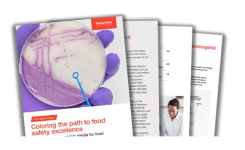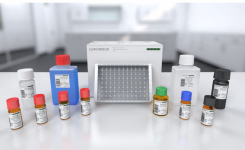| Some patients receive unnecessary antibiotics while in the hospital because positive blood culture results can take several days to determine the difference between serious and aggressive Staphylococcus aureus bacteria and those that initially look like S. aureus but turn out to be coagulase-negative staphylococci (CoNS) from the skin which frequently contaminate blood cultures.
According to a recently published article in the Journal of Antimicrobial Chemotherapy (JAC), AdvanDx’s PNA FISH™ tests provide physicians at the University of Maryland Medical Center (UMMC) with rapid species information the same day a blood culture turns positive, allowing physicians to determine which patients have a true and serious infection and which patients may not have an infection at all.
Consequently, rapid species identification helps the hospital accomplish two key goals: - Prevent unnecessary antibiotic use, especially with vancomycin.
- Reduce the average patient length of stay, and thus the overall cost of healthcare.
In the July 2006 issue of JAC , a team led by Dr. Graeme Forrest M.D., Infectious Diseases Physician and Director of Antibiotic Utilization at UMMC, describes saving $4,000 per patient by using PNA FISH in association with an Antimicrobial Team (AMT) to reduce unnecessary antibiotics use and decrease median length of hospital stay by 2 days (from 6 to 4 days).
According to the article, "CoNS constitute a frequent contaminant of blood cultures and can result in excessive use of vancomycin and consequently an increased length of hospital stay. This can result in excessive hospital costs due to decreased bed utilization and increased pharmacy costs. In addition, the patient may have a greater risk of acquiring an antibiotic-resistant organism or other nosocomial infection. The PNA FISH assay is rapid, accurate and reliable and in association with an AMT could decrease hospital length of stay in patients with CoNS bacteraemia in non-intensive care unit settings and prevent excessive vancomycin usage. We have demonstrated how an integrative approach between accurate and rapid testing in the microbiology laboratory in conjunction with an active AMT can lead to reductions in treatment of contaminated blood cultures, earlier patient discharge and considerable cost-savings."
Reference:
Forrest G. N., Mehta S., Weekes E., Lincalis D. P., Johnson J. K., Venezia R. A. Impact of rapid in situ hybridization testing on coagulase-negative staphylococci positive blood cultures. J Antimicrob Chemother. 2006 Jul;58(1):154-8. |
















